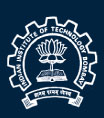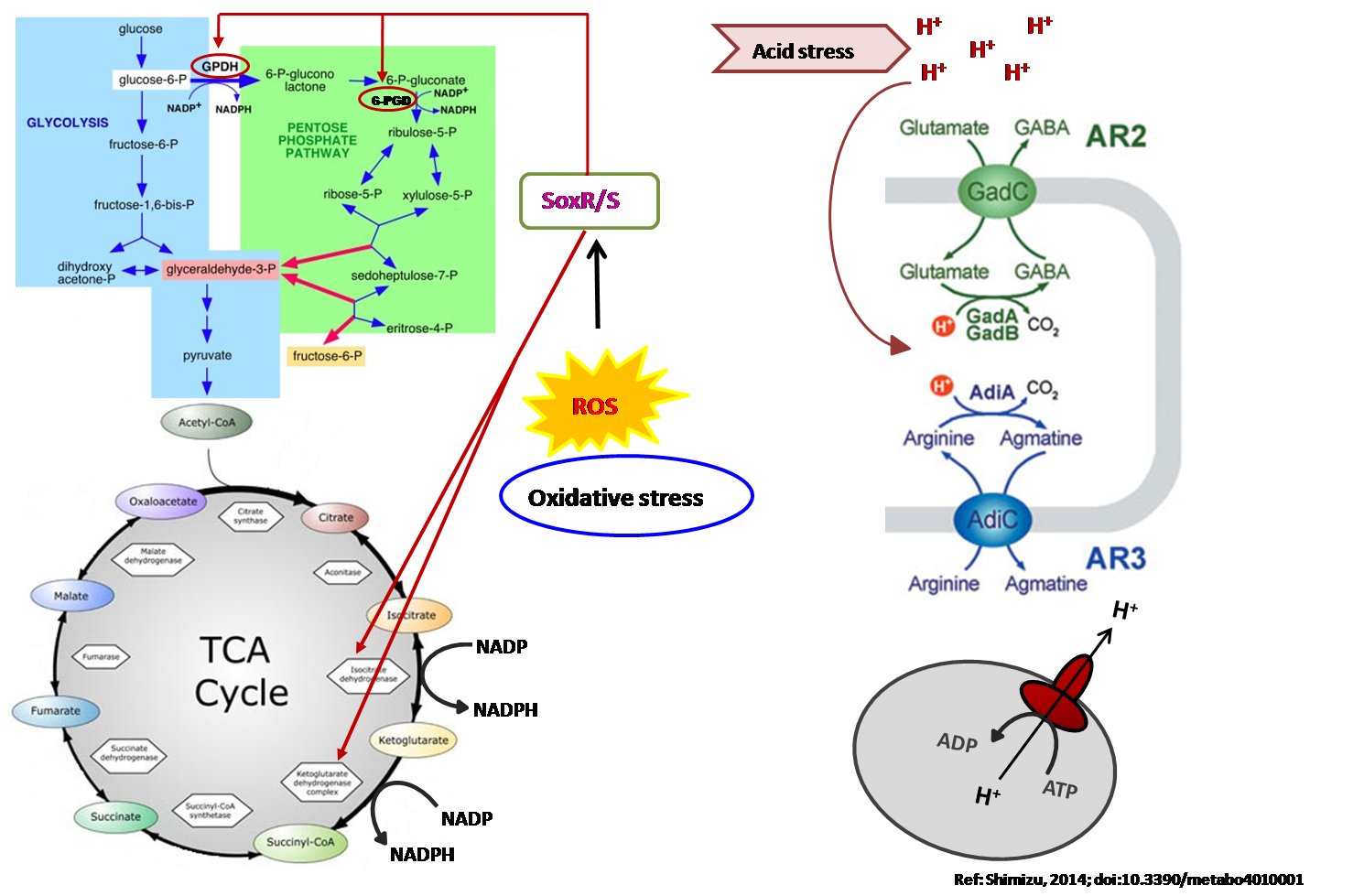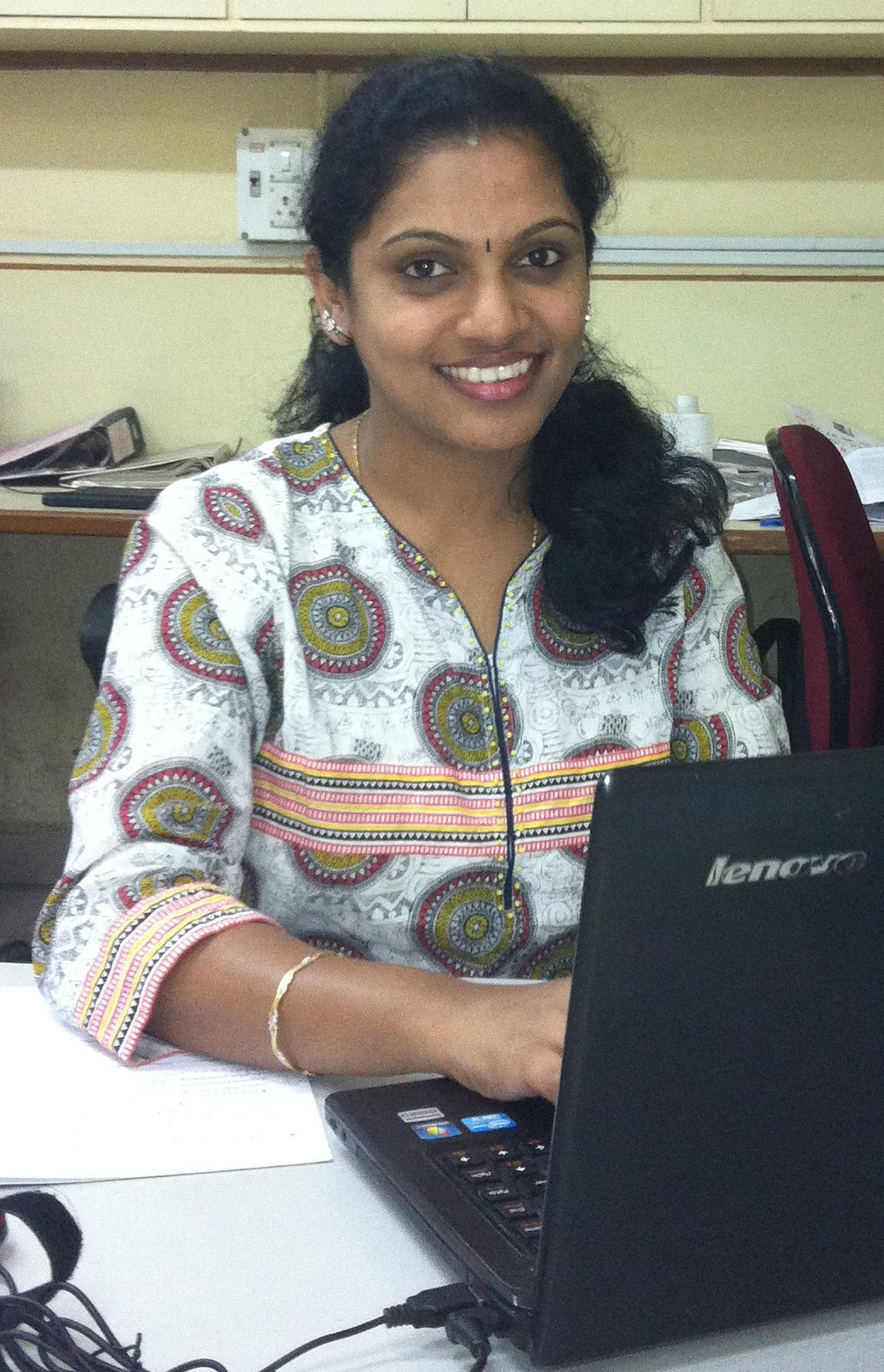
Venkatesh Lab
Dr. Deepti Harinder
Education
Ph. D., Mumbai University, Maharashtra (2008)
M. Sc., (Microbiology), Mumbai University, Maharashtra (2002)
B. Sc., (Microbiology), Mumbai University, Maharashtra (2000)
deeptihs at iitb dot ac dot in
CV A detailed biodata is found here.
Research Summary
Genome scale metabolic model cross-linking stress resistance and metabolic pathways:

Robustness of an organism is a highly desired trait for any industrial strain and it is expected to function efficiently, regardless of the environmental changes like low pH, high temperature, oxidative stress and accumulation of inhibitors etc., that take place during production. Constant efforts are targeted towards engineering such physiological functionalities in order to generate better stress tolerant organisms. Unlike gene/pathway engineering for increased production of a desired end-product, engineering biological robustness to increase its stress tolerance is more multifaceted as it involves complex inter-linked metabolic networks. Thus, in order to understand and thus be able to engineer such physiological properties, it is essential to undertake a ‘systems biology’ approach. It is employed to model and discover properties of cells or organisms, functioning as a single unit or system. Thus, my aim is to study the regulatory interactions involved in a cellular stress response by employing a systems biology approach.
Although genome-wide transcription and proteomic profiling studies have identified the involvement of stress-responsive genes, the involvement of metabolic pathways and enzymes has not been explored in detail. Metabolic pathways are an essential component of the overall cell behaviour. When a cell encounters stress, it not only up-regulates the specific stress responsive genes, but also modulates the expression of metabolic genes, particularly the enzymes governing its central carbon metabolic pathway in order to achieve a new steady state level to combat the stress. Thus, by studying the changes in the metabolic flux of multi-stress resistant organisms, we may be able to pinpoint key regulators involved in such stress responses.
For any successful systems metabolic engineering, in-depth knowledge of systems biology of the particular organism is crucial. This work aims to increase the fundamental knowledge regarding the regulation of metabolic pathways in stress resistant strains and thus build a model for multi-stress resistance with respect to its metabolism. Understanding the regulatory networks of key metabolic pathways that are differentially expressed in a resistant organism can be used to select novel potential targets for engineering of robust industrial strains.
Publications
1. Deepti Appukuttan et al., (2015) Expression and mutational analysis of DinB-like protein DR0053 in Deinococcus radiodurans. PLoS One., 10(2): e0118275. Impact Factor 3.53
2. Singh H, Deepti Appukuttan and Lim S (2014) Hsp20, a small heat shock protein of Deinococcus radiodurans, confers tolerance to hydrogen peroxide in Escherichia coli. J Microbiol Biotechnol., Vol. 24: 1118-22. Impact Factor 1.32
3. Misra CS*, Deepti Appukuttan* et al. (2012) Recombinant D. radiodurans cells for bioremediation of heavy metals from acidic / neutral aqueous wastes. Bioengineered, Vol. 3: 44-48. *Equal contribution authors. (Cited by 7)
4. Deepti Appukuttan et al. (2011) PhoN-expressing, lyophilized, recombinant Deinococcus radiodurans cells for uranium bioprecipitation. J Biotechnol, Vol. 154: 285-290. Impact Factor 2.88. (Cited by 14)
5. Deepti Appukuttan et al. (2010) Natural and Recombinant bacteria for bioremediation of uranium from acidic/alkaline aqueous solutions in high radiation environment. J Biotechnol, Vol. 150S: S53.
6. Deepti Appukuttan et al. (2006) Engineering of Deinococcus radiodurans R1 for bioprecipitation of uranium from dilute nuclear waste. Appl Environ Microbiol, Vol. 72: 7873–7878. Impact Factor 3.95. (Cited by 76)
Citations
https://scholar.google.co.in/citations?hl=en&user=SLwKnzMAAAAJ
Awards and Fellowships
• First prize in the Ph.D category for the paper entitled “Engineering of Deinococcus radiodurans R1 for bioprecipitation of uranium from dilute nuclear waste” at Dr. Dhala’s Felicitation Fund (DFF) Fifteenth Annual Research Paper Presentation Competition, held in Mumbai on March 1, 2007.
• DAE-Mumbai University Collaborative Research Fellowship for pursuing Ph.D. (2002-2008)
• Post-doctoral Fellowship from Korea Atomic Energy Research Institute (KAERI), South Korea (2011-2013).
• IIT-Bombay Post-doctoral Fellowship (2015-present)
